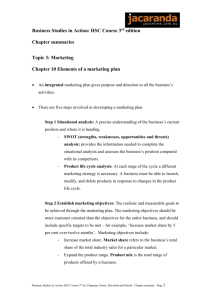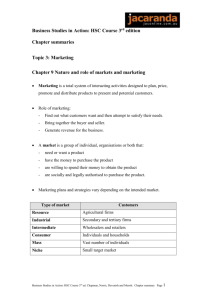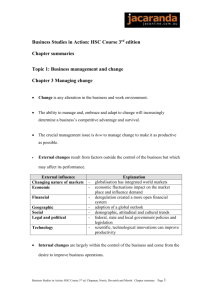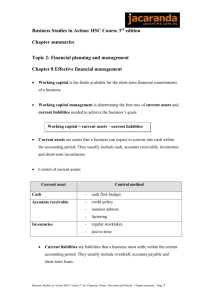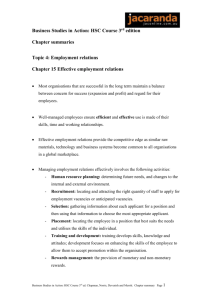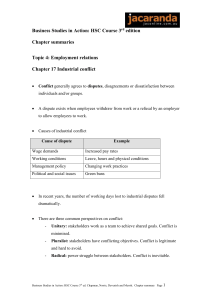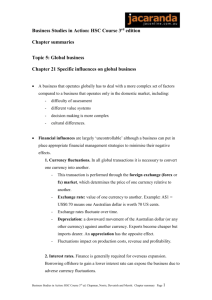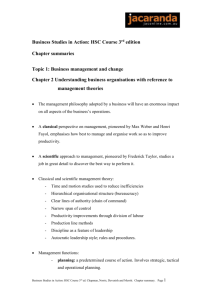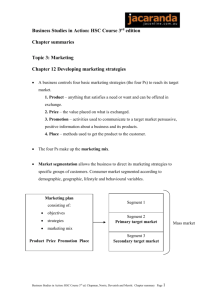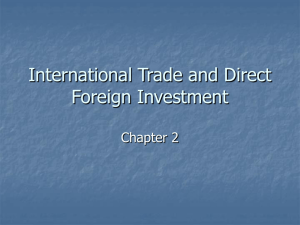Business Studies in Action: HSC Course 3rd edition
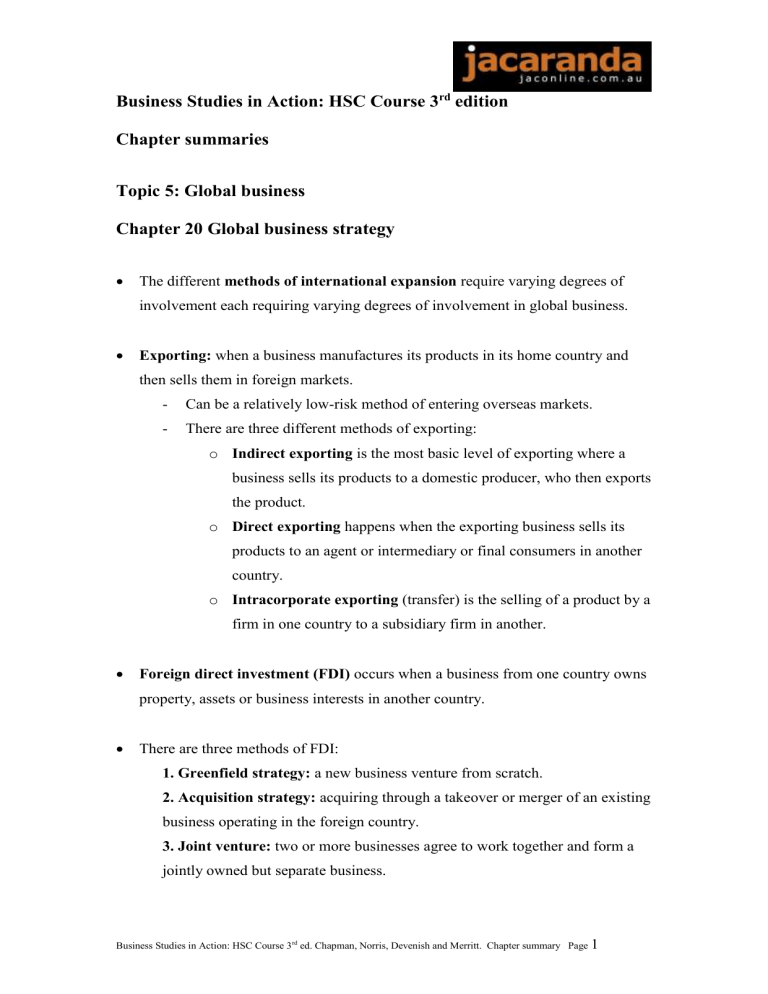
Business Studies in Action: HSC Course 3
rd
edition
Chapter summaries
Topic 5: Global business
Chapter 20 Global business strategy
The different methods of international expansion require varying degrees of involvement each requiring varying degrees of involvement in global business.
Exporting: when a business manufactures its products in its home country and then sells them in foreign markets.
Can be a relatively low-risk method of entering overseas markets.
There are three different methods of exporting: o Indirect exporting is the most basic level of exporting where a business sells its products to a domestic producer, who then exports the product. o Direct exporting happens when the exporting business sells its products to an agent or intermediary or final consumers in another country. o Intracorporate exporting (transfer) is the selling of a product by a firm in one country to a subsidiary firm in another.
Foreign direct investment (FDI) occurs when a business from one country owns property, assets or business interests in another country.
There are three methods of FDI:
1. Greenfield strategy: a new business venture from scratch.
2. Acquisition strategy: acquiring through a takeover or merger of an existing business operating in the foreign country.
3. Joint venture: two or more businesses agree to work together and form a jointly owned but separate business.
Business Studies in Action: HSC Course 3 rd ed. Chapman, Norris, Devenish and Merritt. Chapter summary Page
1 Page 1
Relocation of production (relocation offshore) occurs when the domestic production facility is closed down and then set up in a foreign country. The motivation behind this strategy is usually cost reduction as the relocation is often to a low-cost, developing country.
Management contract: an arrangement under which a global business provides managerial assistance and increased technical expertise to a second or host business for a fee.
Licensing is an agreement in which one business (licensor) permits another
(licensee) to produce and market its product, brand name etc for a royalty fee.
Franchising is a specialised form of licensing in which the franchisor grants the franchisee the right to use a company’s trademark and distribute its product.
Global businesses enter foreign markets for a number of reasons, all of which are ultimately linked to the desire to increase sales and profits.
The main reasons for expansion.
Reason
If domestic markets are small in size or saturated, overseas markets provide new opportunities.
Explanation
Increase sales/new markets
Acquire resources and technology
Diversification
Access to raw materials and technology that are either too expensive or unavailable in the domestic country.
Geographic – markets across the world helps spread the risk of falls in sales in any one market.
Product – increasing the range of products sold.
Supplier – less vulnerable to supply problems and price rises.
Minimise competitive risk
Operating in many overseas markets can lessen exposure to competition.
Economies of scale Cost savings gained when the scale of production increases.
Cushioning economic cycle
Selling in numerous markets cushions the impact of a reduction in domestic demand.
Business Studies in Action: HSC Course 3 rd ed. Chapman, Norris, Devenish and Merritt. Chapter summary Page
2 Page 2
Regulatory differences
Taking advantage of differences in laws of the host country to gain a cost advantage.
Tax minimisation Low-tax host countries offer incentives of tax holiday and tax haven .
Business Studies in Action: HSC Course 3 rd ed. Chapman, Norris, Devenish and Merritt. Chapter summary Page
3 Page 3
